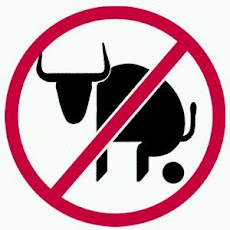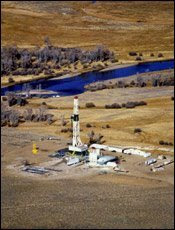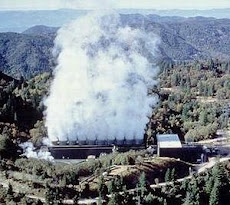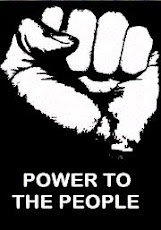Certainly, we were some of the original “horse whisperers”. The resplendent Native horse cultures believed the equine an extension of his own being with a telepathic bond providing an instinctual sense of each other’s journey and direction. Today this connection is all but lost. By the 1960’s only a few true “whisperers” remained.
Early one morning during a visit to “Crow Fair” at Crow Agency, Montana, the family watched as an older Indian gentleman rode into the festivities from out of the hills. I was in my early teens. We were camped somewhat off from the many tepees, horses and fairgoers, just up from the Little Big Horn River. We watched an old man descend as Dad prepared breakfast. Out of the morning haze and radiant rising sun loped the man and his horse. We could see he must have been hitting the bottle pretty hard; his horse maintaining a sturdy and even gait that just held its floundering partner on his back. As the elderly man swooned from left to right, forward and back, somewhere in the imbibed, cross-eyed view he caught sight of our active little camp. When he moved within range, the sizzling bacon caught his nose and a broad smile opened across his face as his chest spread open to the possibilities; a full meal, plus entertainment.
As well, we knew at that very moment he was about to give us all that he could offer-his steed, and endless laughter, for a spot of coffee, eggs, bacon, potatoes and toast. It was not much to figure out, these two commodities-laughter and each other, perhaps a horse, perhaps even booze, saw Indian Country through the years of terror and depression. He had it all. We knew the combination made for the unexpected, clearly a spiritual notion.
He pulled up along side the table and pointed to the food. Things were still pretty traditional in those years at Crow Agency. Very little English was spoken and a while before the Fair became an enormous event in Indian Country. “Sure, join us,” my father answered with as broad and as deep a smile as the rider. Someone rustled up a plate and we made a spot for the Crow man to come sit. He slid loosely off the side of his Appaloosa, his boots hitting the ground sooner than he anticipated. But he caught himself quickly, not wanting to appear fully tanked. He swayed to his place and shook hands with each one of us down and around the table.
Pete (my older brother) and I checked out his horse. We’d both done some riding ourselves, but hadn’t seen a head bandana used for a harness before. We were used to sliding a metal bit like the European, in a callused mouth that told a horse you meant to be in charge when you gave directions. Of course this was an old Indian rider so he’d trotted in on bare back. His reigns were a couple pieces of surplus rope attached to the red bandana. From the time our breakfast company slid from his steed’s side and dropped his reigns, the horse stood his ground except to swish his tail. He was the essence of well trained.
Between attempts to make small talk with little to no English, the old man laughed and carried on in Crow. While enjoying his breakfast he happened to notice Pete eyeing his horse. Gesturing with his lips he pushed Pete to go ahead, get on… then nearly fell over laughing. Pete’s face lit up. Such a beautiful Appaloosa and a ride out in Crow country ought to be more interesting than pow-wow.
Now mother on the other hand, knew the difference between an Indian pony and what we were used to riding. In the Crow fellows laughter she knew the irony, sometimes sarcasm that goes with Indian humor: I am laughing with you, at you, and at myself all at the same time. An Indian pony is a trained psychic. They are trained for nuances, and specifically the nuances of his/her partner. They need little more than the thought of moving; quickly, carefully, slowly and respond in kind. Mother told Pete, “Be careful, these horses like a gentle touch. And even so, he may never have had anyone but this old man on his back. He might not let anyone else on him!”
Pete gave her a nod as he stepped to the side of the old man’s ride. He grabbed up the reigns and held them in his left hand as he gave the horse a couple pats with his right. The horse gave Pete a couple sniffs and looked him over, then returned to his tranquil repose. Pete jumped on back without a problem while the old man shook uncontrollably with laughter over his plate. In one typical move for Pete, he kicked the horse and shook the reigns to signal, “Let’s go!” The horse went wild! He bucked and reared, struggling to throw Pete from his back. As the Appaloosa kicked his legs out from behind and reared up in anger, we could hear Pete yelling, “Whoa! Whoa!”
Our breakfast company doubled over even further, practically on the ground and slapping his sides with his hands. Speaking all Crow he gathered up his faculties and seemed to explain what by then was apparent. “Gentle! Gentle.” Gesturing with both hands he demonstrated how he barely moved the reigns to get the horse to go.
“Yes”, mother nodded as she took up the man’s plate and coffee. “Thank you. Nice to meet you.”
Pete lowered himself gently from the still agitated creature. By now the old guy had gotten to his feet and steadied himself on a corner of the table. As though he were about to mount an Olympic vault, he took a moment of silence, eyed his apparatus and made a straight shot to the back of his horse, thrusting his right leg up as if he was sure he’d definitely make it on. What with booze, breakfast and so much laughter he had little left to jump back on his other half. The horse stood purposefully still. Dad moved quickly from his place at the table and shoved the old man back on board. Still giggling, he demonstrated one more time how he instructed the charger to move. Truly, whatever he was doing to signal right, or left, or go was nearly invisible. It may have been a nod of the head or a slight move with the reigns, we really couldn’t see it, but they knew where they wanted to go because off they rode toward the center of the fairgrounds. Pete’s pride was somewhat tarnished. We all told him we would have done the same thing-but remember those Indian ponies!
A couple hours later walking up to the Fair’s daily parade, we spotted our horse whisperer sleeping it off under a choice tree with his loyal companion ground-tied a few feet away. Whether he was born of the past, present or future, he changed our world. His journey taught about a world we would never see. His expertise no longer suitable, and yet he knew patience-that state of grace, allowing all souls a chance to prove their loyalty and devotion. What he knew was past down from the ones before him, completed by his own ability to listen to the winds, to nature. These things we can talk about, attempt to teach, but it is the doing, in motion, the process, where truth unfolds. His expertise out-moded and lost to the world of the car, he took with him the instinctual intelligence of man with animal; the great connection of natural dialogue with all species, the comfort in that companionship, the recognition of each other’s gifts and needs. This is a special form of listening, of being alert to our languages and connecting, honoring all beings on the journey.
The language of creation is through symbols, signs, metaphors. The dialogue of breath, of imagination, of quiet, of practice, of heart, allows us to express all to Creation…and receive its reply. By entering this space of reflection we understand more fully our value in this moment, and in that moment find the current of change.
Click on title above for original article;
http://www.indigenousexchange.com
Saturday, January 30, 2010
Subscribe to:
Post Comments (Atom)



















No comments:
Post a Comment